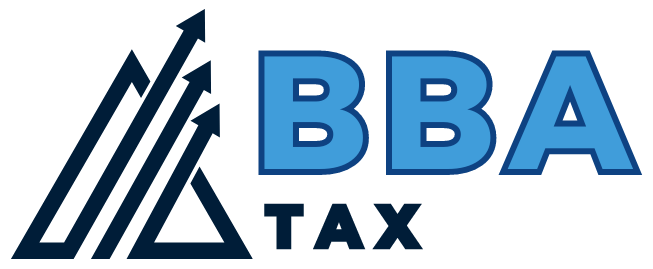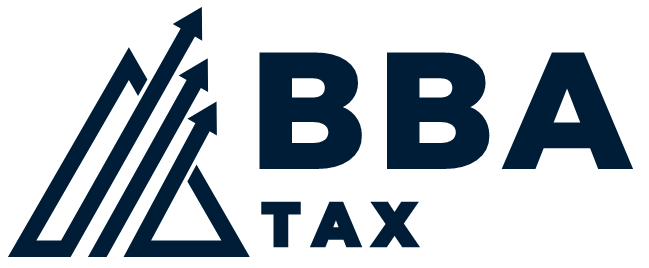Harmonized Sales Tax (HST) and Goods and Services Tax (GST) are key components of Canada’s tax system. For businesses across Ottawa and the rest of Canada, understanding HST/GST filing requirements is crucial for maintaining compliance and avoiding penalties. Whether you’re a new business owner or an established company looking to streamline your tax process, this guide will walk you through the essentials of HST/GST obligations for Canadian businesses.
At BBA Tax, we specialize in helping businesses navigate the complexities of tax filing, including HST/GST filings. This comprehensive guide will explain everything you need to know to ensure your business stays compliant while optimizing your filing process.
Table of Contents
- What is HST/GST?
- Which Businesses Must Register for HST/GST?
- How to Register for HST/GST
- HST vs. GST: What’s the Difference?
- Understanding Input Tax Credits (ITCs)
- HST/GST Filing Periods
- How to File HST/GST Returns
- Common HST/GST Deductions for Businesses
- Penalties for Late or Inaccurate HST/GST Filings
- How BBA Tax Can Help with Your HST/GST Filing
1. What is HST/GST?
The Goods and Services Tax (GST) is a federal tax applied to most goods and services sold in Canada. Harmonized Sales Tax (HST), on the other hand, combines the GST with provincial sales tax in certain provinces, resulting in a single tax rate. These taxes apply to most commercial transactions, and businesses that meet certain revenue thresholds are required to collect and remit HST or GST to the Canada Revenue Agency (CRA).
In provinces where HST applies, the tax is administered by the federal government and includes both the federal GST portion and the provincial component. The provinces that use HST include:
- Ontario
- New Brunswick
- Nova Scotia
- Prince Edward Island
- Newfoundland and Labrador
Other provinces and territories, such as Alberta, only apply GST at a rate of 5%.
2. Which Businesses Must Register for HST/GST?
As a business owner, one of the first questions you may ask is, “Do I need to register for HST or GST?” The CRA mandates that any business with gross revenues exceeding $30,000 in a calendar quarter or within the last four quarters must register for GST/HST. This is commonly referred to as the small supplier threshold.
However, some businesses must register for HST/GST regardless of their revenue:
- Taxi and ride-sharing drivers must register and collect HST/GST on all fares.
- Non-residents selling digital products or services to Canadian consumers may also need to register for and remit HST/GST under new rules that came into effect in July 2021.
Businesses that do not meet the revenue threshold can voluntarily register, which allows them to claim input tax credits (ITCs) (discussed below).
3. How to Register for HST/GST
Registering for HST or GST is a straightforward process, and it can be done in one of three ways:
- Online through the CRA Business Account Portal: If you already have a business number, you can use the CRA’s online portal to register for HST/GST. If not, you will need to apply for a business number first.
- By phone: Call the CRA at 1-800-959-5525 to register your business.
- Through a tax professional: At BBA Tax, we can handle the registration process for you, ensuring that all details are correctly submitted.
When registering, you’ll need to provide key information such as your business number (BN), type of business, estimated annual revenue, and the start date for collecting HST/GST.

4. HST vs. GST: What’s the Difference?
While GST is a 5% federal tax applied across all of Canada, HST is a combination of GST and provincial sales taxes in certain provinces. Here’s how they differ:
- GST: The federal tax rate is 5% and applies across all provinces and territories.
- HST: The HST rate varies by province:
- Ontario: 13%
- Nova Scotia: 15%
- Newfoundland and Labrador: 15%
- New Brunswick: 15%
- Prince Edward Island: 15%
Businesses located in HST-participating provinces must charge the harmonized rate, while businesses in non-HST provinces charge the standard 5% GST rate plus any applicable provincial sales taxes (PST/QST).
5. Understanding Input Tax Credits (ITCs)
Input tax credits (ITCs) allow businesses to claim back the GST/HST paid on eligible business expenses. This helps reduce the amount of tax that must be remitted to the CRA. ITCs can be claimed on:
- Inventory purchases
- Operating expenses such as utilities, rent, and professional services
- Capital property acquisitions
- Business travel and entertainment expenses
To claim ITCs, you must maintain proper documentation, such as receipts and invoices, which clearly show the GST/HST paid. The CRA expects businesses to keep detailed records for at least six years.
6. HST/GST Filing Periods
Once your business is registered for HST/GST, you will be required to file periodic tax returns. The filing frequency is determined by your annual revenue:
- Annual filing: For businesses with revenue below $1.5 million.
- Quarterly filing: For businesses with revenue between $1.5 million and $6 million.
- Monthly filing: For businesses with revenue above $6 million.
The CRA will assign your filing period when you register for HST/GST, but you may be able to request a different filing frequency to suit your business’s cash flow.
7. How to File HST/GST Returns
HST/GST returns can be filed electronically through the CRA’s My Business Account portal or by mail. Here’s what you’ll need to complete your HST/GST return:
- Total sales: Report all taxable and exempt sales made during the reporting period.
- HST/GST collected: Report the total amount of tax collected on sales.
- Input tax credits: Report any credits you are claiming for the GST/HST paid on business expenses.
After submitting your return, you must either remit the amount owed or, if your ITCs exceed the amount of HST/GST collected, request a refund from the CRA.
8. Common HST/GST Deductions for Businesses
Businesses can reduce their overall tax liability by understanding which expenses are eligible for ITCs. Some common deductions include:
- Office supplies and utilities: GST/HST paid on office materials and utility bills can be claimed as an ITC.
- Marketing and advertising costs: These business expenses, including promotional materials, are typically eligible.
- Professional services: Legal and accounting fees are tax-deductible and qualify for ITCs.
- Vehicle-related expenses: If you use a vehicle for business purposes, the GST/HST paid on gas, maintenance, and lease payments may qualify as an ITC.
To claim these deductions, ensure that you keep organized records of all eligible expenses and receipts.

9. Penalties for Late or Inaccurate HST/GST Filings
Filing your HST/GST returns late or inaccurately can result in costly penalties. These penalties include:
- Late filing penalties: Charged at 1% of the amount owing, plus an additional 25% of this amount for each full month the return is late, up to 12 months.
- Interest charges: The CRA charges compound daily interest on overdue amounts.
- False reporting penalties: Filing false information on your return can result in penalties of up to 50% of the understated tax.
To avoid these penalties, ensure that you file your HST/GST returns on time and keep accurate records of all transactions.
10. How BBA Tax Can Help with Your HST/GST Filing
Navigating HST/GST obligations can be complex, but you don’t have to do it alone. At BBA Tax, we offer comprehensive HST/GST filing services to businesses in Ottawa and across Canada. Our expert accountants can help you with:
- HST/GST registration
- Accurate and timely HST/GST returns
- Claiming ITCs and maximizing tax credits
- CRA audit representation and compliance reviews
- Ongoing tax planning to reduce liabilities
Our team stays up to date on the latest tax regulations, ensuring that your business remains compliant while optimizing its tax position.
Conclusion
Understanding and managing your HST/GST obligations is an essential part of running a business in Canada. From registration to filing, staying compliant can be time-consuming and complex. However, with the right tax strategies and professional guidance, you can streamline the process and reduce your tax liabilities.
At BBA Tax, we’re here to assist with all your HST/GST filing needs in Ottawa and beyond. Contact us today to learn how we can help your business stay compliant and maximize its tax savings.



